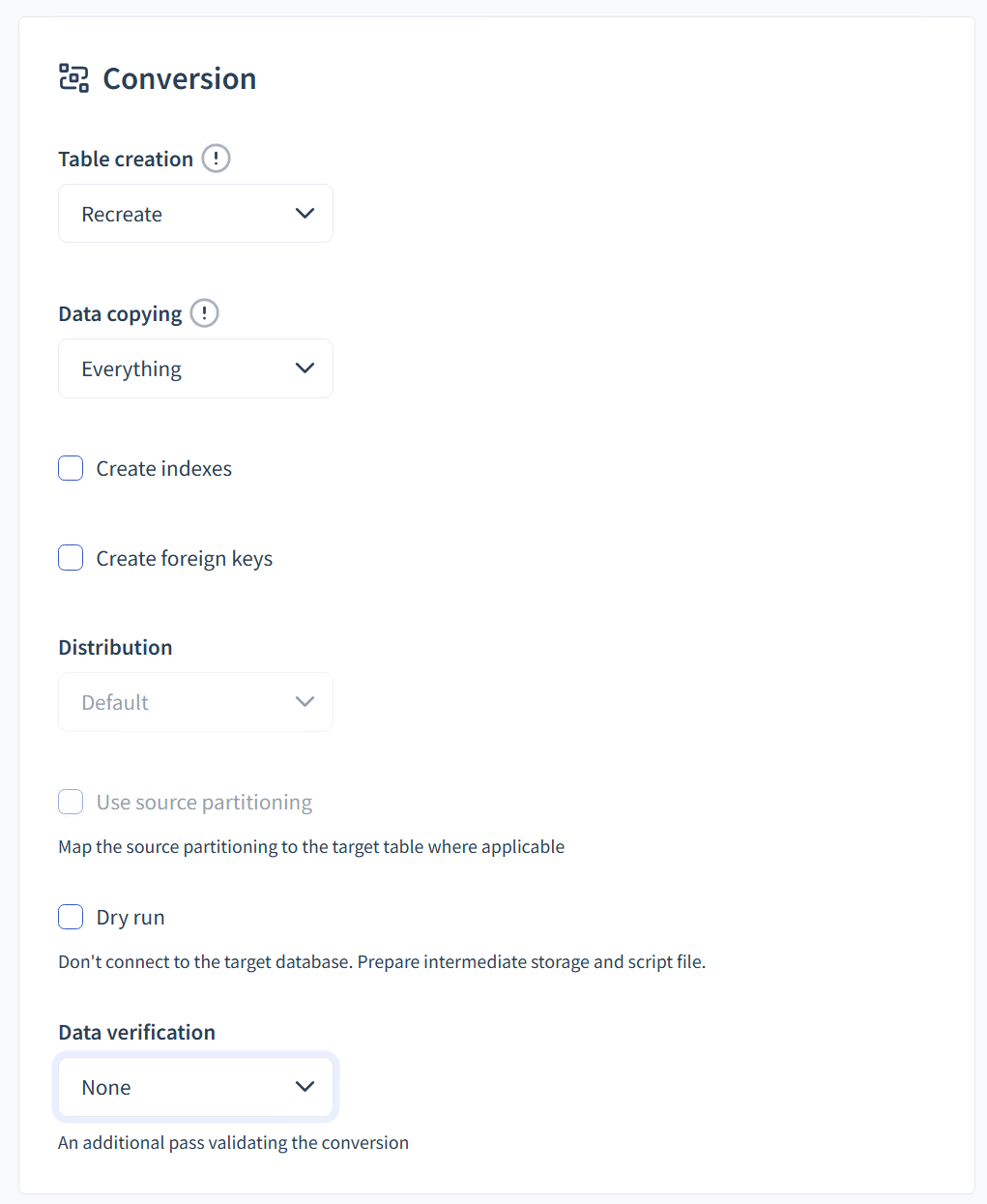General
Table creation
By default, Omni Loader will create all of the tables in the target databases, dropping them beforehand if they already exist. If you already have target tables in place, you can opt to load data only and not touch the target schema. To do so, select Expect existing instead of Create.
Data copying
By default, Omni Loader will copy all of the data. To skip data copying (for example, if you only wish to create the target schema), select None.
Everything Copies all of the records from the source. If table creation is set to expect existing tables, data will be truncated before being reloaded.
Append Copies all of the records from the source without truncating.
Added records Copies only records in the source table with higher primary key value than the highest primary key value in the target table.
None Skips the data load.
Create indexes and foreign keys
Create Indexes helps speed up your database by organizing and optimizing the way it stores information, making searches and retrievals faster for better software performance.
Create Foreign Keys establishes connections between different tables in your database, ensuring data relationships and maintaining data integrity. This helps to prevent inconsistencies and errors in your software, promoting a smoother and more reliable user experience.
Index and foreign key creation is something you generally want to leave on when target tables are being created but leave it off when expecting existing tables.
Dry Run
Prepares everything without actually writing to the target database. If target is a data warehouse, Omni Loader does load the data to the remote storage and prepares the scripts so you can run the scripts manually if desired.
You may want to turn this off if you expect tables to already exist.
Data verification
None Performs no verification.
Record count Compares number of records in source and target tables and reports any discrepancies
Table hash comparison Reads all the data in each table, hashes it, then compares the hashes and reports which tables have differences. It cannot provide the exact differences but is more performant than record value comparison.
Record value comparison Reads and compares each value in each table. It shows the first 100 records with differences of each table in the UI.

Last updated